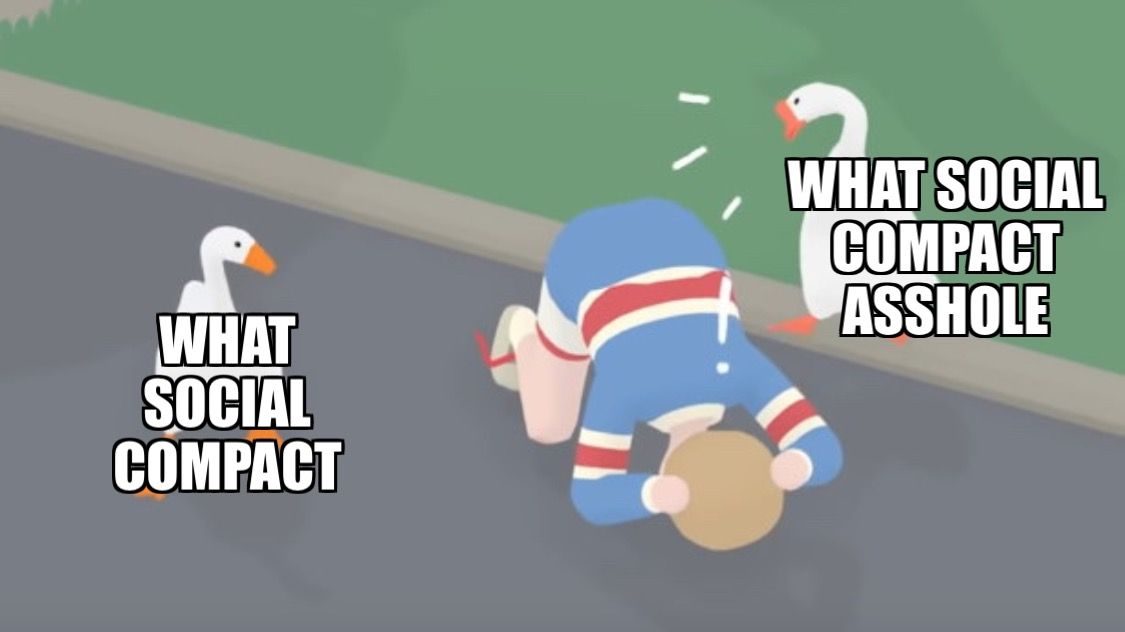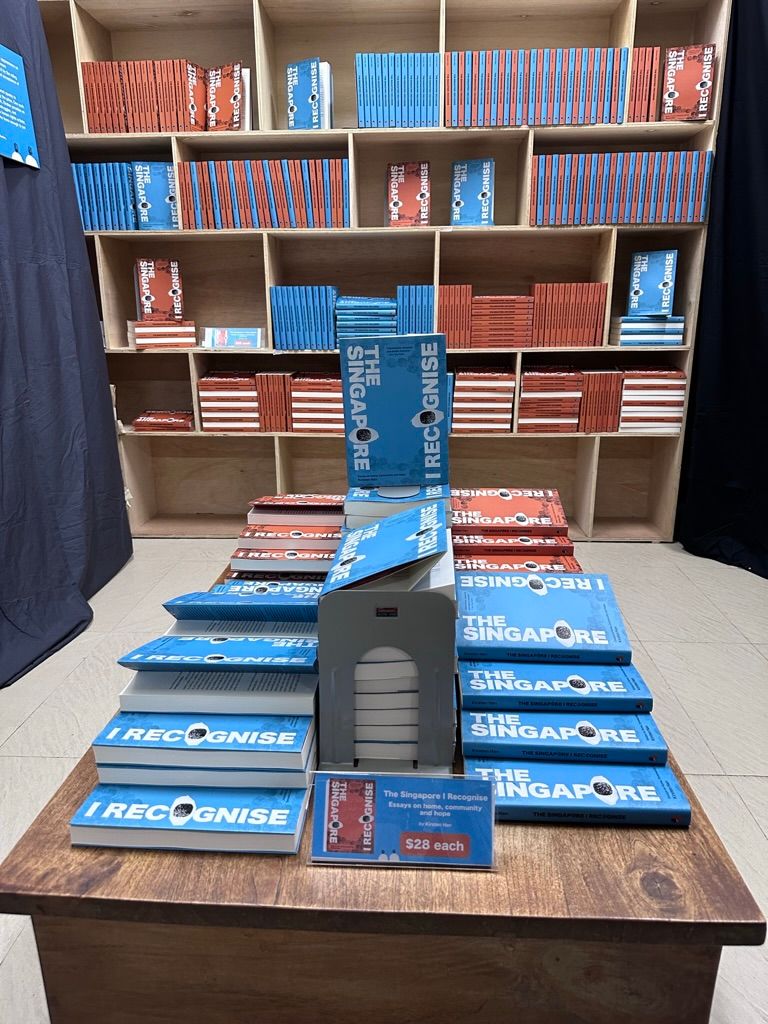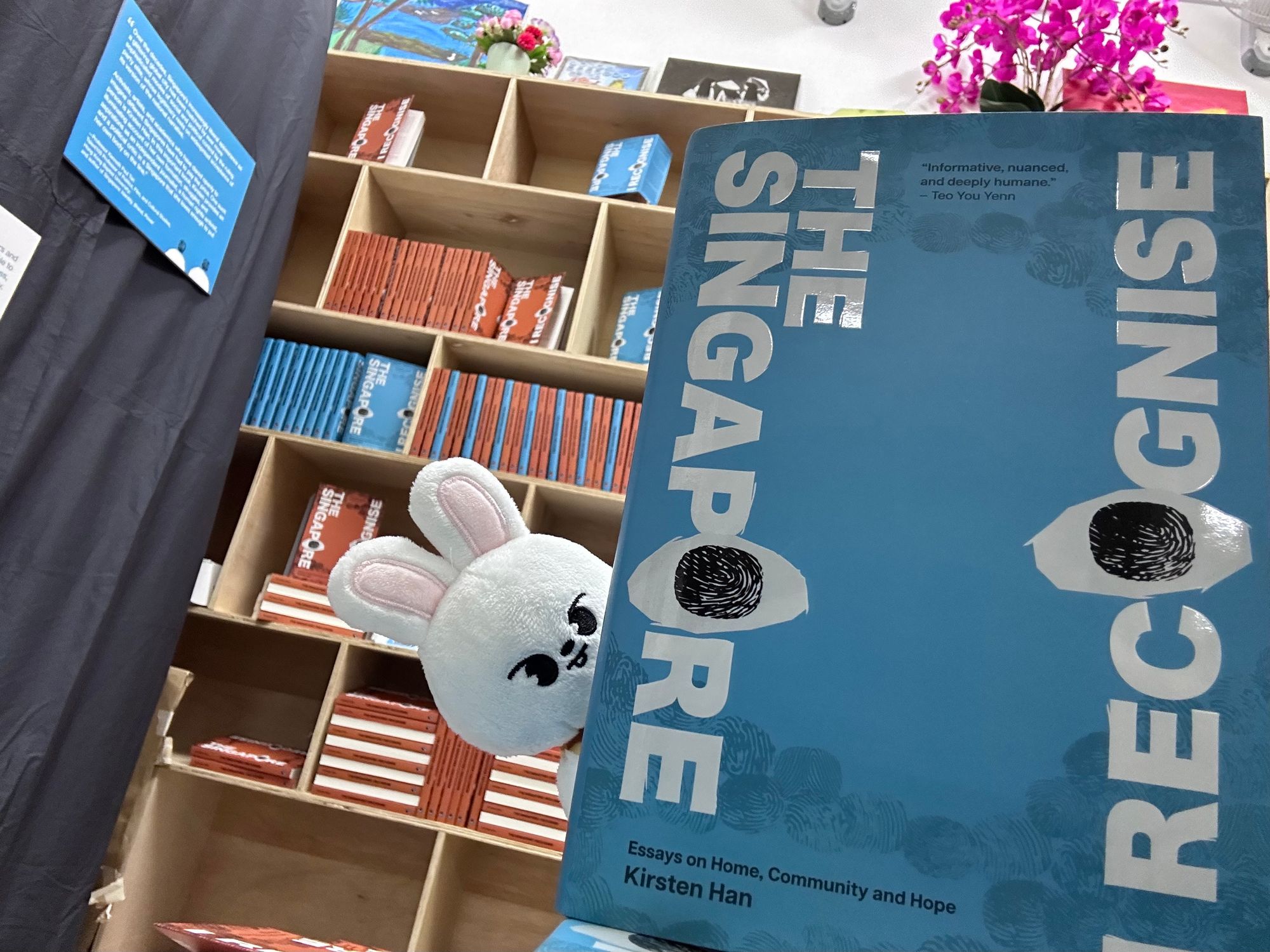I’m over at the Ethos Dreams pop-up this weekend for the One Book Bookshop, where the one book being stocked is mine! The Singapore I Recognise: Essays on Home, Community and Hope will be officially published in September, but there’s a limited number of copies available at the One Book Bookshop this weekend. I’ll be signing books there from 2pm–4pm today, and again tomorrow. You can also pre-order the book here.
The third execution in eight days
Singapore hanged a 39-year-old Singaporean Malay man on Thursday morning. I wrote about his case in last week’s wrap. 😔
That made it the third execution in eight days, after Mohd Aziz bin Hussain and Saridewi bte Djamani the week before.
It's really not that complex
Every time there's a call for a ban on transporting migrant workers in lorries, we get so many excuses. A group of 25 business chambers and associations (including a fintech company wtf) say that there are “complexities” in ending this practice, and that there will be side effects like *checks notes* traffic jams. They wrote: “In the process of transitioning to safer transportation modes for workers, it is essential to acknowledge that society must be ready to accept a change in the social compact.”

The Ministry of Transport, Ministry of Home Affairs, Ministry of Manpower, Land Transport Authority, Building and Construction Authority, Enterprise Singapore and the Singapore Police Force have also issued a joint statement acknowledging that such a mode of transport is “not ideal”, while warning about the possible consequences of banning it. “If the companies are unable to operate their businesses, there will be knock-on effects on society, including delays affecting new housing projects, polyclinics and MRT lines, as well as higher costs for all Singaporeans,” they said. “Their employees – both Singaporean and migrant workers – would also risk losing their jobs if the companies close down.”
It’s actually quite simple. What we’re seeing here is moral bankruptcy.
The fundamental question is this: do you believe in the need to keep migrant workers as safe as possible, and treat them with the same dignity that you would treat anyone else?
If your answer to this question is “yes”, then ending the practice of ferrying them in the backs of cargo lorries and providing them safer transport is a necessity to any business that employs migrant workers, as non-negotiable as paying for electricity in the office. You might not like it, you might cry at the bill at the end of the month, but you’ve just got to suck it up.
If your answer to this question is “no”, then you shouldn’t be in any position of power over not only migrant workers, but anyone at all, because you have no baseline respect for human beings and it likely sucks for other people to have to work under you.
The business owners and government officials are clearly not answering “yes” to the question, yet don’t want to admit that they fall in the “no” category. So they come up with all these distractions about traffic jams and construction delays, without providing any clear evidence that these things really would happen. And even if they did happen, if the answer to the question was “yes” then they’re just issues we would have to address, not reasons to continue transporting migrant workers in this unsafe and demeaning way.
The government is capable of moving fast when they want to. We saw it when they banned PMDs with just a day's notice, citing safety concerns. Yet when it comes to calls—repeated over years—to ban transporting migrant workers on lorries, they suddenly have so many reasons to drag their feet.
The key here is $$$, but not just money—whose money. Banning PMDs overnight might cause some inconvenience to the delivery companies, but the cost is ultimately borne by the delivery riders themselves—workers who, in the Singaporean context where independent unionising is non-existent, aren’t seen as having enough capital (financial, political, social) to exert much pressure on the government. The construction industry, though, can cause pain, not just because the business owners have clout, but also because the government itself depends on construction projects to deliver on policy promises (like BTOs and polyclinics) and spur economic growth (like malls and tourist attractions). They don’t want to rock that boat, and migrant workers—poor, non-citizens, non-voters, systemically disempowered as a collective force—are just not as important in comparison to capital and profit.
The workers themselves have expressed fears for their safety, and feelings of being disrespected and dehumanised by this treatment. If your business can only survive by cutting corners and providing substandard conditions for your employees, then you don’t have a sustainable business. I thought we were very fond in Singapore of saying that no one owes anyone a living? So why are we expecting migrant workers to compromise their own safety and well-being so that Singapore can continue profiting off their backs?
Parliamentary nonsense
Lee Hsien Loong gave a ministerial statement on the CPIB probes and the affair and resignations. I don't think we learnt very much that we didn't already know. The main things that leapt out was that, while on forced leave of absence, Iswaran got a pay cut... to S$8,500/month. We later discovered that he still gets his MP allowance—despite not being able to perform his MP duties—so that comes up to receiving about $24.5k a month while being investigated in a corruption probe.
Nice for some, isn't it?
Responding to a question about whether Iswaran’s MP allowance has been interdicted, PM Lee said it was not as it is different from ministerial pay.
— Kimberly Lim 林敏仪 (@kimberlylimmy) August 2, 2023
Iswaran’s monthly ministerial pay was reduced to S$8,500, said Lee, & a search revealed that the monthly MP allowance is S$16,041.
Lee also admitted that he should have "forced the issue" and acted on Tan Chuan-jin and Cheng Li Hui's affair sooner. He know then good. But there's still no answer as to why Tan's accepted offer of resignation was kept quiet for months; if that time was ostensibly for a handover to be arranged in Tan's constituency, what was the timeline for this transition, and what was done? As RICE Media pointed out, the question was asked in Parliament, but not answered.
Pritam Singh got his time in the sun pointing out the hypocrisy of Lee Hsien Loong lecturing him about Confucian ethics even when the prime minister had known—and was keeping quiet about—Tan and Cheng's affair. Why you liddat liddat while you knew the situation was liddis liddis... It was a fair point to make and after yonks of having to endure the pettiness it was inevitable that Pritam was going to make it. But why did he have to override Raeesah Khan's wishes in describing her experience as sexual assault (instead of rape) to do so?
Last but not least, we were also informed that the CPIB reports to the prime minister because they can't report to God. Glad that's all cleared up. 🙄 Our understanding of independent oversight mechanisms in this country is so jialat I cannot tahan...



